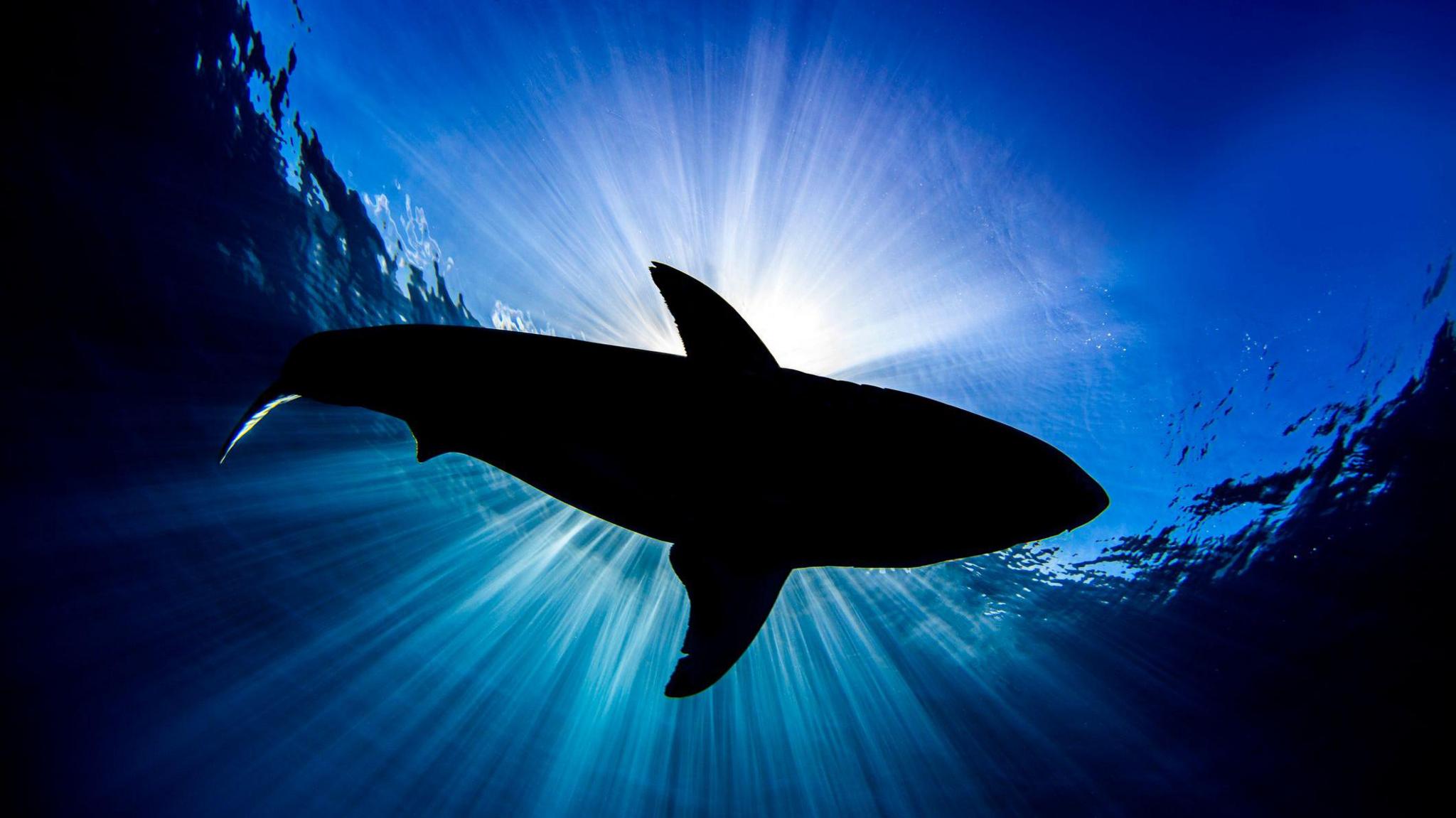How LED lights could stop shark attacks

Great whites have a lower ability to see shapes and details than humans
- Published
New research has found that using LED lights on the bottom side of a surfboard or kayak might help put off great white sharks from attacking.
A study by Australian scientists used seal-shaped decoys to test the theory out.
They found that using lights on the underside disrupted the ability of great whites to see shadowy shapes - or silhouettes - against the sunlight.
That cut the rates at which the sharks followed and attacked the objects thinking they were potential food.
The brighter the light, the better it was at stopping shark attacks.
- Published19 February 2019
- Published14 May 2023
- Published23 October 2014
The study's lead author Dr Laura Ryan's previous research suggests that attacks on humans by great white sharks may be a case of mistaken identity.
Great whites have a lower ability to see shapes and details than humans.
This means they might not be able to clearly tell seals apart from swimmers or from people paddling surfboards.
The new study looks at how this might change is the light on the object is different.
How did the study work?
They towed decoys behind a boat for dozens of hours
The scientists from Macquarie University in Sydney conducted the study in Mossel Bay South Africa and published the findings in the journal Current Biology.
They towed decoys behind a boat for dozens of hours changing the amount of lights on the underside of the decoy.
They initially found success by covering the whole of the decoy in lights.
Experts in Australia try all sorts of ways to prevent shark attacks - including using drones.
But, as that is not practical for a surfboard they experimented with different lighting options including strips of LED light.
These were found to have a similar deterrent effect.
Dr Laura Ryan's research suggests that white sharks rely on the visual cues of a dark object silhouetted against a lighter background.
“If you flip that to a light object on a dark background, then it doesn’t seem to be something they recognise as prey,” she said.
How might the study help?
The research could help improve safety for surfers
The team is currently testing a surfboard prototype with fitted lighting.
“Surfers can be a little bit fussy with their surfboards,” Dr Ryan said. “As a surfer, I want it to be usable.”
More research is needed to look at things such as whether the lights have the same effect on the sharks behaviour with non-moving decoys as well as whether the lights are effective in deterring other species of sharks.
However, if proven to be effective this research could help reduce shark attacks on people surfing or taking part in other board sports.
- Published3 September
- Published22 April
- Published23 March 2021
